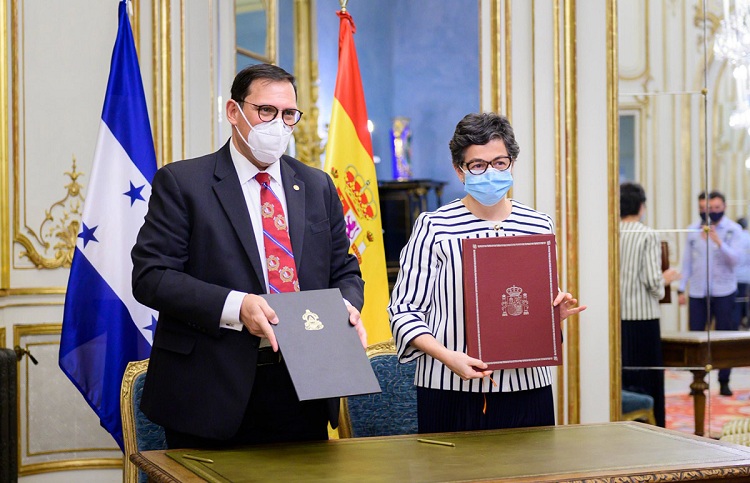The Diplomat
The Plenary of the Congress authorized last December 23 the ratification of the agreement between Spain and Honduras regarding the regulation and management of labor migration flows between the two countries.
Since the beginning of the year 2020, the Honduran authorities have asked Spain on several occasions for the possibility of participating in the program of collective recruitment at origin carried out by the General Directorate of Migration of the Ministry of Inclusion, Social Security and Migration. The competent Spanish authorities, after evaluating the proposal, decided to comply with the Honduran request and agreed to the adoption of an international pact between the two countries on migration flows.
The negotiations of the text were carried out since the beginning of 2021 and concluded with the signing of the agreement, which was carried out last May 28 (after authorization by the Council of Ministers) by the then Minister of Foreign Affairs, Arancha González Laya, and her Honduran counterpart, Lisandro Rosales, coinciding with the official visit to Madrid of the Foreign Minister -and of the Honduran Minister of Labor and Social Security, Olvin Villalobos, among others- to participate in the first Meeting of the Spain-Honduras Political Consultation Mechanism, provided for by the Memorandum of Understanding between both Ministries.
The objective of the agreement is to regulate in an orderly and coherent manner the existing labor migration flows between both States, to deepen the general framework of cooperation and friendship between the two countries and to prevent irregular immigration, in order to guarantee a safe, orderly and regular migration and with special attention to the community of Hondurans in Spain, as González Laya and Rosales addressed during their meeting in Madrid. According to data from the National Statistics Institute (INE) for 2020, there are currently more than 120,000 Hondurans living in Spain, mainly in Catalonia and Madrid.
The agreement articulates a procedure for the selection of workers at origin and regulates the working conditions and social rights of the workers. It also provides for the obligation of readmission, by either country and at the request of the other, of any person who does not or no longer satisfies the requirements for entry or residence applicable in its territory. The agreement is monitored by a Joint Coordination Committee.







